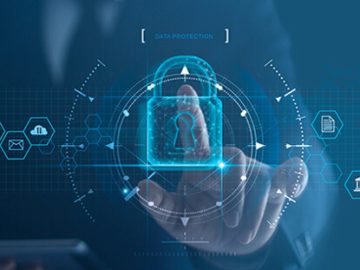At the IT Security Guru we’re showcasing organisations that are passionate about making cybersecurity a healthier, more mindful industry. This week, Aaron Webb, Senior Product Marketing Manager at Jamf, spoke to the Gurus about how leaders can approach the burnout crisis in cybersecurity, what the future of the industry looks like if nothing changes, and why now is the time for change.
How can business leaders best approach the burnout crisis?
Aaron tells us three key things leaders can do to recognise and remediate the burnout crisis:
Recognition and Awareness: Recognising that burnout and mental health issues are prevalent in the cybersecurity field is the first step. Creating awareness within the industry about the signs and symptoms of burnout and mental health challenges is crucial. This includes understanding the unique stressors faced by cybersecurity professionals, such as high-pressure work environments, long hours, constant threat of cyber attacks, and the need to stay updated with rapidly evolving technology. Encouraging open conversations about mental health and reducing the stigma associated with seeking help are vital aspects of this approach.
Supportive Work Environments: Creating supportive work environments can significantly mitigate the risk of burnout and promote better mental health among not only cybersecurity professionals but every employee. This involves implementing policies and practices that prioritise employee well-being, such as flexible work arrangements, reasonable workloads, opportunities for skill development and career advancement, and access to resources for managing stress. Additionally, fostering a culture of teamwork, collaboration, and support can help individuals feel more connected and less isolated in their roles. After all, cybersecurity is on every employee, not just the security professionals.
Self-Care and Stress Management: Encouraging individuals to prioritise self-care and adopt healthy stress management techniques is essential for preventing burnout. Providing education and resources on stress reduction strategies, mindfulness practices, regular exercise, adequate sleep, and maintaining a healthy work-life balance can empower cybersecurity professionals to take proactive steps towards maintaining their mental well-being. Employers can also offer employee assistance programs or mental health resources to provide additional support when needed.
Why is now the time to change?
Now is the time to change because the mental health crisis in cybersecurity is reaching critical levels, impacting individuals’ well-being, productivity, and overall effectiveness in combating cyber threats. Several factors contribute to the urgency of addressing this issue:
- Increased Demand for Cybersecurity Professionals: The demand for cybersecurity professionals continues to rise as organisations recognise the importance of safeguarding their digital assets. However, this demand also means that cybersecurity professionals are often overworked and under immense pressure to keep up with the evolving threat landscape.
- Growing Awareness of Mental Health: There is a growing awareness of mental health issues across various industries, including cybersecurity. As conversations around mental health become more mainstream, there is a greater acknowledgment of the need to address burnout and other mental health challenges in the workplace.
- Impact on Security Posture: Burnout and mental health issues can significantly impact an organisation’s security posture. Fatigued and stressed employees are more prone to making errors, overlooking vulnerabilities, and experiencing decreased performance, which can ultimately compromise the effectiveness of cybersecurity defences.
How can organisations support their cybersecurity employees to circumvent the risk of burnout. Any general advice?
Aaron says:
- Training and Skill Development:
- Continuous Learning: Invest in ongoing training and professional development to keep employees up-to-date with the latest cybersecurity threats and tools. This not only enhances their skills but also keeps their work engaging.
- Cross-Training: Encourage cross-training among team members, allowing them to learn from one another and be more versatile in handling different aspects of cybersecurity.
- Mental Health Support:
- Access to Resources: Provide access to mental health resources, such as counselling services and employee assistance programs. Ensure that employees are aware of and comfortable using these resources.
- Promote Work-Life Balance: Encourage a healthy work-life balance and discourage long working hours. Ensure that employees have time to rest and recharge.
- Workload Management:
- Prioritise Tasks: Help cybersecurity professionals prioritise tasks and focus on the most critical issues. Ensure they are not constantly bogged down with low-priority or repetitive work.
- Workforce Planning: Adequately staff your cybersecurity team to distribute the workload more evenly. Overburdened staff are more likely to burn out.
- Incident Response Planning: Develop clear and efficient incident response plans. When security incidents occur, having a well-structured plan can reduce the chaos and stress associated with handling emergencies.
Importantly, Aaron notes that: “These strategies should be tailored to the specific needs and culture of your organisation. Open communication with your cybersecurity team is key to understanding their challenges and tailoring support effectively.”
Finally, what do you think the future of cybersecurity looks like if nothing changes?
If nothing changes, the future of cybersecurity could be fraught with even greater challenges and risks. Here are some potential scenarios I can see if we don’t address this:
- Increased Cyber Attacks and Breaches: Without significant changes in cybersecurity practices, the rise of Nation State threats, and the evolution of AI, organizations will remain vulnerable to increasingly sophisticated cyber attacks. Hackers will continue to exploit vulnerabilities in systems and networks, resulting in more frequent and severe data breaches, financial losses, and disruptions to business operations.
- Escalating Cybersecurity Skills Gap: The shortage of skilled cybersecurity professionals will worsen, exacerbating the cybersecurity skills shortage. Although I see a future where AI plays a huge part in the protection of businesses, but also on the side of the threat actors, leverage AI attacks that evolve to allude detection. AI is currently only responsive to the data available, whereas skilled cybersecurity professional have the ability to envision, anticipate, feel, and evaluate changing situations, which allows them to shift from the immediate need to long-term concerns. Without the skilled humans to work alongside AI it’s going to be a very different war on security we are facing.
Jamf are currently sponsoring The IT Security Guru Cyber Mindfulness Corner. They were early pioneers of The Cyber Wellbeing Movement, also sponsoring last year’s Wellbeing Corner at the International Cyber Expo.




